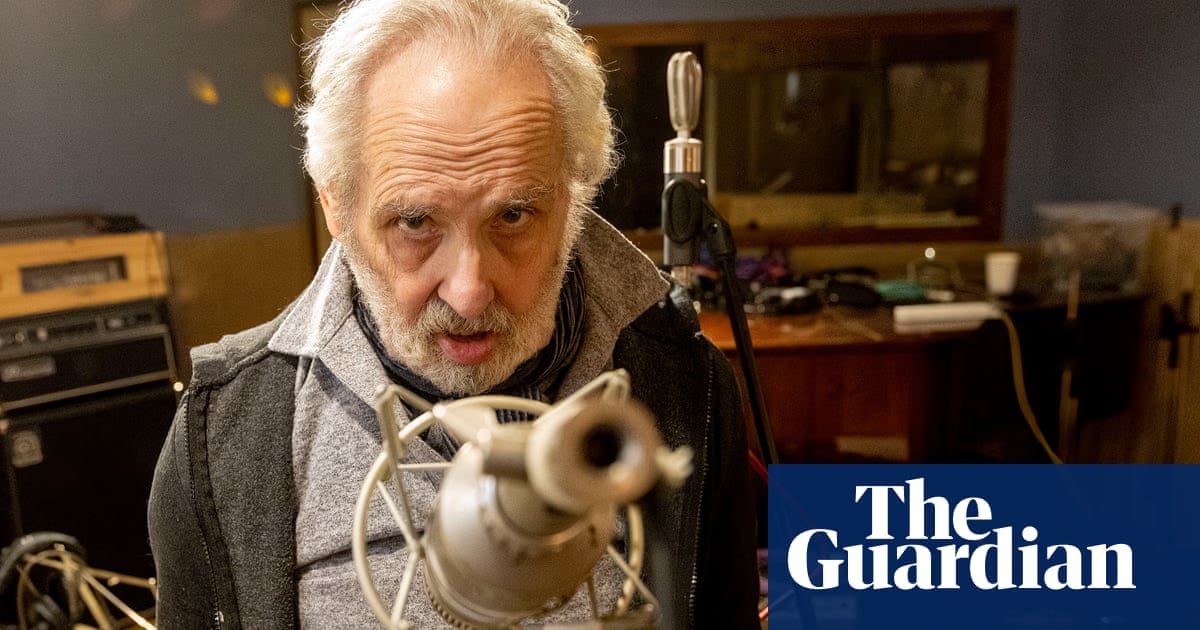
atti Smith talks about her first poetry performance – in 1971 at St Mark’s Church in New York’s Bowery – as if it were yesterday. “I remember everything,” she says over the phone from her home in New York. Smith was in her early 20s, working at a bookshop and living in the Chelsea Hotel with her then lover, the playwright Sam Shepard. She had attended poetry readings before, most of which put her into a deep sleep. “I wanted to do something that wasn’t boring,” she recalls. “Sam said that since I sang to myself all the time, I should try singing a song, or maybe do something with a guitar.” And so she called on the musician Lenny Kaye to provide “interpretative” noises on guitar while she half-read, half-sang her poems.
The show was an instant hit. “It seemed to make a big impression on people – which I really didn’t understand,” she says. The producer Sandy Pearlman approached her afterwards and suggested she front a rock band. She eventually took his advice, making the landmark album Horses in 1975, and an icon of American punk was born.
To celebrate 50 years since the St Mark’s show, next month Smith will be taking over the light screens at London’s Piccadilly Circus. Curated by the digital artist Josef O’Connor and designed for our socially distanced reality, the installation will combine art, music, poetry and prose, and include two recorded performances – one scheduled for midnight on New Year’s Eve and another on the day of the US presidential inauguration on 20 January. “Some of the work I did in my bedroom, some in a recording studio and some at my desk,” says Smith, 74 this week. “I had to teach myself how to use Photo Booth on my computer and film myself reading a poem. I’m sure there are 14-year-olds who can do this in five minutes but it took me quite a while. But I got there and I’m so proud of myself.”
Her favourite piece is a reworked version of Peaceable Kingdom. Written in the aftermath of 9/11, it is a song of solace and hope in the face of catastrophe and, in performing it, Smith will be commemorating 100 NHS workers who have died from Covid. “It’s just so sad when we lose people who work so hard to rebuild our world,” she reflects. She will also read a new poem dedicated to the environmental campaigner Greta Thunberg, who will be 18 in January and who, Smith says, “pretty much sacrificed her childhood for all of us”.
Smith is a great talker: generous, self-deprecating, yet deeply serious about her work. She apologises for not using Zoom but, she explains, “I can feel a person’s presence, talking to them on the phone. You and I could be sitting in the cafe across the street.”
She says the past 10 months have been tough. Smith has a lifelong bronchial condition – “I was a sickly kid, sometimes they were worried that I wouldn’t pull through” – and so has stayed home throughout the pandemic. Accustomed to travelling, with her band or on book tours, she can scarcely remember spending longer than two weeks at home before now. There was the time, in 1979, that Smith put her career on hold for a decade to raise her two children with her late husband, the MC5 guitarist Fred “Sonic” Smith. But then, she says: “I had so much responsibility and a true purpose. To be in limbo almost 10 months, for a person like me who doesn’t like sitting in the same place, it’s been very challenging. I feel like I’m part-wolf, roaming from room to room.”
Four years under Trump has also taken its toll. “It’s been a terrible atmosphere to live in,” she says. “You try to do your work and not let [politics] permeate your consciousness daily but it does. It’s very insidious.” She notes that she and the outgoing president are about the same age. “I have encountered him in New York through the years and found him a horrible, narcissistic person and just a bad businessman. I’ve seen the debris of his deals. I think the damage he has done is going to be felt for a long time. It’s not going to be so easily healed because globally he has empowered people of a like mind.”
Nonetheless she will take “huge psychological relief in the new administration. I’m a natural optimist so I’m not without hope or inspiration. What matters is trying to clean up some of his mess and get some order. I’m doing that in my house. I’m a messy person, and I know that before I can do something creative or exciting I’ve first got to clear everything away.”
Although Smith is celebrated for her music – Rolling Stone ranked Horses as the 26th greatest album of all time and in 2007 she was inducted into the Rock and Roll Hall of Fame – she sees herself a writer rather than a musician.
“My daily practice since I was young has always been writing,” she says. “I was married to a musician and my children are musicians, so I know how a musician thinks. It’s out of respect to [them] that I don’t like being called one.”
Over the past 20 years she has largely swapped poetry for memoir, initially with her award-winning book Just Kids, about her relationship with Robert Mapplethorpe. Her two subsequent books, M Train and Year of the Monkey, focused on her recent life, revealing her as a solitary soul dedicated to creativity and for whom the ghosts of those she has lost – her parents, her brother, her husband – remain close.
“The funny thing is, I never wanted to write non-fiction,” she says. “For years I wrote fiction, all of it unpublished. Then Robert asked me the day he died to write our story and I, of course, promised him that I would.”
Mapplethorpe died due to complications from HIV in 1989, though it took Smith 10 years to start writing Just Kids and another 10 to complete it. When she first arrived in New York, her plan wasn’t simply to make a lot of money. “I had more hubris than that,” she explains. “I wanted to do something great. I wanted to write a classic. My dreams were much loftier than fame and fortune. But Robert really wanted me to have success … And in my whole life, including any record, [Just Kids] has been my most successful undertaking. So Robert got his wish.”
Now Smith is working on a new book that she calls “auto-fiction”, which will be full of dreams and imagination, and a further reflection on where her life is now. Smith keenly “feels the urgency of our global problems”. But, she adds: “I still love life. I’m so grateful to be able to write – my notebook has been my companion through the most difficult times. As a writer, I’ll get as dark as I have to be – you can be a pacifist or a murderer in your work. But as a mother, a grandmother, an aunt, I try to stay upbeat and practical and responsible. I try to live by my parents’ work ethic and I plug away, and do what I have to do to make things as good as they can be.”
She still loves performing – “My goal is to stay in contact with people, and when I go on stage it’s all for them” – but it has not always been smooth sailing. Smith mentions her performance of Bob Dylan’s A Hard Rain’s Gonna Fall at the 2016 Nobel prize ceremony in Sweden, when she forgot the lyrics and had to stop and start again. “I blanked, I just froze,” she says. “I felt like a child. I just wanted to run away and hide under the bed. But I had to forge on because I had a responsibility. If that performance did nothing else, I hope it gave an example to not give up in the face of humiliation, and just to take a breath and keep going.”
Taking a breath and keeping going is what Smith is doing now under lockdown, working on her book and counting the days until she can hit the road once more. Lately she has been dreaming of revisiting Leonardo da Vinci’s Last Supper in Milan, and Rubens’ Adoration of the Magi in Cambridge. “But art endures, and these works aren’t going anywhere,” she says. “When the time is right, I will be back.”
Circa presents Patti Smith throughout January at 20:21 GMT at Piccadilly Lights, London. A limited-edition print by Smith will be available to buy for £100 from 1 January. Viewers can watch the installation on YouTube from 23:45 GMT on 31 December.












